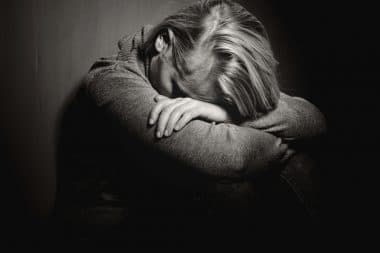Depression is a mental condition that has emotional repercussions. According to Webster’s dictionary depression is: a psychoneurotic or psychotic disorder marked especially by sadness, inactivity, difficulty in thinking and concentration, a significant increase or decrease in appetite and time spent sleeping, feelings of dejection and hopelessness, and sometimes suicidal.
Depression is a condition that can affect anyone but also appears to ‘run in families’. There is some dispute as to whether that has a genetic component or is a learned behavior. In either case depression does appear to have a higher incidence in families where there is a member already diagnosed with depression.
Depression associated with aging has significant public health concerns because depression is one of the most common mental disorders experienced by older adults.
Adults, who are currently approaching retirement years and later adulthood, the baby boomer population, seem to have a higher rate of depression than other previous groups of retirees. This greater trend toward depression is the subject of debate and it isn’t clearly understood.
Depression associated with aging has a few other components not also found in depression in younger populations. Research published in the American Journal of Psychiatry September 2005 found that older adults who were diagnosed with depression had the same percentage of rates of remission as middle aged adults. However this population also had a higher rate of relapse.
In other studies researchers have found that women who are in menopause or who have completed this biological process have a higher risk of depression. And those women who have a family history of depression have an even greater risk of the condition.
Rates of depression in women are also greater than rates in men. This may have something to do with the hormonal activity that is common in the bodies of women. Men are less likely to admit they have depression and doctors are more likely to ignore it. Men are at higher risk for suicide but more women attempt suicide than men.
Scientists aren’t sure if these changes in the brain are related to low estrogen levels found during and after menopause or if they are related to brain changes that occur with old age. Treatment with low dose estrogen or SSRI anti-depressant medication has been very successful in treating women with depression at this stage in their lives.
Researchers know that the hypothalamus is a small area of the brain that stores memories and is important in regulating mood, sleep and sexuality. What they have found on autopsy is that people who have been diagnosed with a major depressive disorder have a smaller hypothalamus than those who didn’t suffer from depression. This lack in size and function of this portion of the brain may have had some inhibiting effect on the ability to function properly.
Depression isn’t only prevalent in the older population but also has a high impact on healthcare in communities. Older adults who are depressed tend to use health services at higher rates, have poor health behaviors and have a higher risk of suicide.
Treatment of depression associated with aging continues to require continued scientific study and applied treatment. The study of depression in the elderly falls under the umbrella of geriatric study and is a topic worthy of more research.






Reply